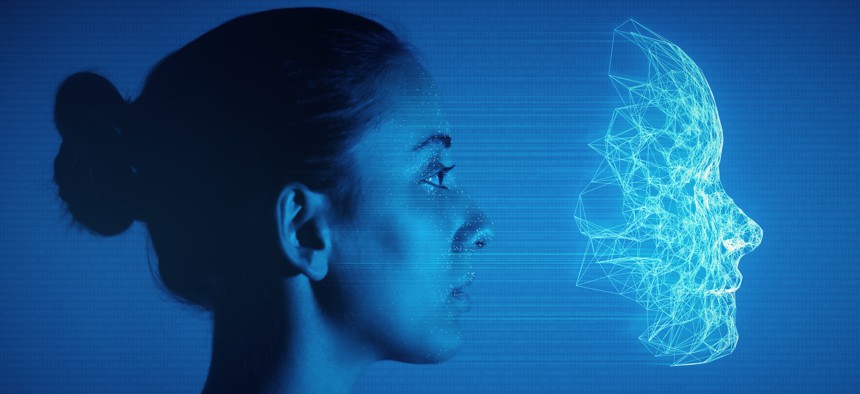House bill limits police use of facial recognition

imaginima/Getty Images
The legislation would place “strong limits” on the technology’s use, provide transparency to those harmed by it and ensure there are annual assessments of its accuracy.
Legislation introduced by four House Democrats would place “strong limits” on the use of facial recognition technology by law enforcement agencies.
The Facial Recognition Act would allow the use of facial recognition technology only when police obtain a warrant that shows probable cause that a violent felony had been committed.
Law enforcement would also be prevented from using facial recognition to document how individuals express their constitutional rights, for example, through lawful protest. The bill also bans matches based on the technology from being the sole reason probable cause is established for a search, arrest or other law enforcement action.
Facial recognition would also be banned from use in conjunction with databases that contain illegally obtained information as well as imagery from body cameras, dashboard cameras and aircraft cameras. Tracking individuals on live or stored video footage would also be prohibited.
Law enforcement agencies would be required to regularly audit their facial recognition technology systems, and their use would be suspended if they were to fail that audit. Databases would be purged every six months of photos of individuals who are younger than 18, who were released without charge, had charges dismissed or were acquitted of the charged offense. The technology would also be subject to independent testing and detailed reporting from judges and prosecutors.
No state or local law would be preempted by this national standard, the bill said.
“Facial recognition technology must not be used as an invasive, intrusive surveillance tool because, if unrestrained, this powerful technology can be misused for racial profiling, infringing on personal privacy, and vilifying people who exercise their Constitutionally protected rights, such as the right to participate in peaceful protests,” Rep. Sheila Jackson Lee (D-Texas), one of the bill’s co-sponsors, said in a statement.
This bill’s introduction comes as the federal government continues to wrestle with the impacts and use of facial recognition technology, which has been accused of racial bias and privacy violations, among other flaws. The National Institute of Standards and Technology has spent several years looking to improve the accuracy of facial recognition systems by working with vendors to make the technology’s algorithms more accurate. It is set to issue more reports on that work in November.
A variety of advocacy and law enforcement groups said they supported the legislation, with many emphasizing its effort to prevent facial recognition technology discriminating against minorities.
“[T]his legislation … addresses a real nexus issue – the interconnectedness of today’s world, people’s right to privacy, and people’s right to safety,” Lt. Diane Goldstein (Ret.), executive director of the Law Enforcement Action Partnership, said in a statement. “By putting forth a framework that establishes, among other things, a warrant rule, due process rights, and disclosure requirements, this legislation will ensure that good police work is being done with the aid of technological advances and within the parameters of the constitution.”






